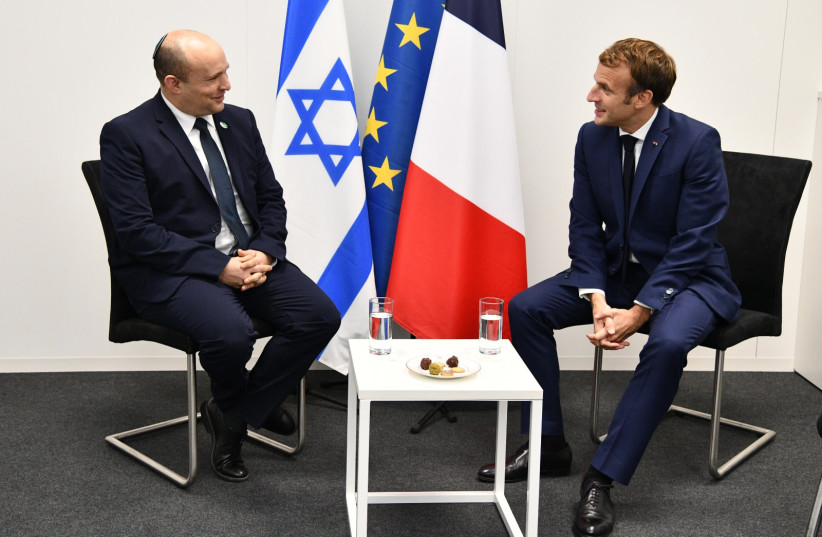GLASGOW – It takes about an hour, even with press credentials, to get through the line to enter the Blue Zone – the official country delegations – of the United Nations Climate Conference.
It is a long hour, because for half of that wait time, the cold Scottish air is quite unwelcoming – until we inch to the covered security area.
Since we are in the United Kingdom and people are patient and polite, I had to restrain my Israeli instincts to push and weave and cajole.
It is a reverse Tower of Babel. Languages, familiar and exotic, are heard in the buzz around me, as representatives from nearly 200 countries come together to try to prevent the next Great Flood instead of inadvertently causing it. Or, as the prime minister of Barbados put it, to prevent a death sentence against her nation and the other island nations that form about a quarter of the membership of the UN.
I was fortunate to be on the Israeli delegation to the Paris Climate Conference six years ago, but this time everything is different. In Paris, there was a sense that the world had finally come together to end the self-destructive addiction of burning fossil fuels. But the last six years have been the hottest in history, and greenhouse gas emissions have continued to rise.

Attending Glasgow is a cross between being an optimist on the Titanic and Noah’s woodcutters: “Adaptation, mitigation, conservation and regeneration”; “The power to change.” The slogans are everywhere, from the electric trains and buses that ferry all 20,000 of us around to the slick displays of Qatar, the UAE, Nigeria and dozens of other countries promoting their better facets. I walk past their displays humming the shmita song that my rabbi, Oded Mazor, wrote to dedicate this sabbatical year in the Land of Israel.
The UN Conference is divided between the Blue Zone – the official country delegations – and the Green Zone, where electric cars, planes, minicars and lots of nature-based solutions are displayed in the Glasgow Science Museum.
I was happy to meet my friends from the British Board of Deputies and the EcoSynagogue initiative, which this Shabbat counts 40 communities across the full religious spectrum participating in veggie meals, green sermons and even a guest speaker or two from Israel on environmental and climate issues.
THE CONFERENCE started on Halloween, which was a bit eerie. The colorful costumes on the streets have since disappeared, but the most colorful participants at the conference, with feathered headdresses, are from indigenous tribes around the world whose cultures and ability even to live are perhaps most threatened.
More promises are made: to end deforestation by 2030, to cut emissions nearly by half by 2030, to provide access to clean and affordable power to all by 2030, to increase investment in green energy and climate solutions, and for rich nations to fork over $100 billion a year to poor nations to adapt and mitigate. As someone in the solar business, I was happy to hear everyone finally singing our song.
In Paris, many promises were also made, and hardly any were kept. So the new round of raised expectations is being heard with more skepticism but also with a different sense of desperation – since we’re basically out of time. The Ghana booth has a digital climate clock that is quickly counting down seven years by the second, marking the point of no return if emissions are not cut in half by then.
One of the other differences between Paris and Glasgow is the youth activists, who here are the shining hope and perhaps the most articulate about their threatened future. So many of the world leaders have mentioned them and that future; many have been given prime-time slots in the program. If in Paris we were all moved by the danger to polar bears, in Glasgow we are worried about our children. But I think they got it, as long as our leaders will follow them.
Tomorrow, I have to get up very early to make my morning meetings, and I am just dreading the long wait in the cold to get into the Blue Zone.
What I am really worried about is that if the world can’t figure out how to speed up entrance to the climate conference, how are we going to speed up the deployment of renewables at a pace to save our aching planet?
Yosef Israel Abramowitz can be followed @Kaptainsunshine.
